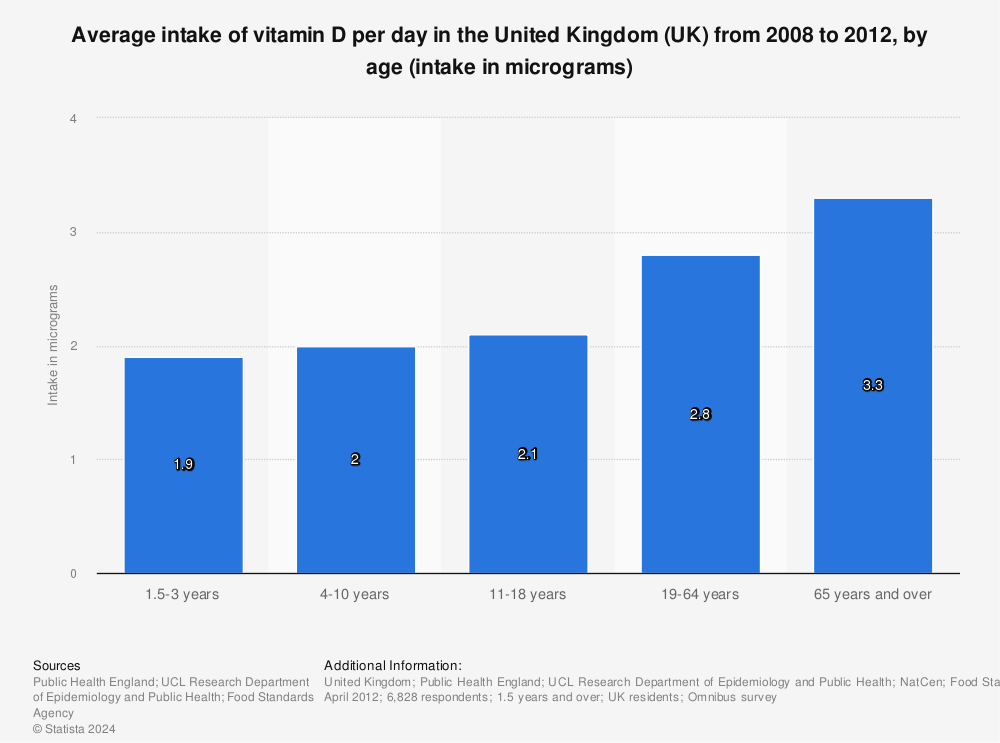Which vitamins and minerals do children need?

Kids going back to school means plenty of time spent among friends, new and old, running around the playground and picking up new knowledge and skills in the classroom.
However, the first few weeks back at school are also a prime time for viruses and bugs to thrive. Children tend to catch and carry nasty illnesses like colds, sore throats, flus, and more, spreading them easily.
So it’s important to ensure your little ones are getting the right vitamins and minerals in their diet to keep their health and immune systems in tip-top shape, so they can avoid catching viruses in the first place or be in a better position to fight illness if they do fall sick.
A healthy, balanced diet full of fresh vegetables and fruit, as well as the right proteins and carbohydrates, can help a child get most of the vitamins and minerals they need. However, as childhood is when humans do most of their growing, kids sometimes need more of crucial nutrients like calcium, vitamin D, and other important proteins to support their growth.
To help parents understand which vitamins and minerals children need the most, Nutriburst nutritionist Christianna Aristidou Karaolis tells Yahoo UK what is important for kids as they grow, as well as how to address common deficiencies in the UK.
Which vitamins are most important for growing children?

While a balanced diet can provide children with nearly all the nutrients they need to grow, there are several specific vitamins and minerals that growing kids can really benefit from having more of.
Karaolis explains: "Considering childhood is a time of tremendous growth, we want to ensure they have adequate quality protein to provide all the amino acids which are literally the building blocks of everything in the body.
"Bone health nutrients such as calcium and vitamin D are also crucially important and not all children get enough of either!"
She adds: "The human brain undergoes more development and forms new neural connections during childhood than any other time in life, so we want to prioritise brain health nutrients."
This means prioritising certain foods that have healthy fats, such as olive oil, avocado and nuts, as well as anti-inflammatory foods like blueberries and cacao, and choline-rich foods like eggs and B-vitamins.
In terms of immune support - which is vital, especially during back-to-school season - vitamins D, C, A, E, B’s, Omega-3, zinc, selenium, and elderberry can aid in "both the healthy function of the immune system as well as minimising severity and frequency of illness".
The amount of vitamins and minerals children need depends on their age, size and weight. Your health professional can provide Nutrient Reference Value (NRV) guidelines to help you see what the recommended daily quantity of a nutrient the average person of your child’s age needs to avoid deficiency.

This can be a useful guideline within the context of your child’s diet, lifestyle and health status, Karaolis says. She adds: "So if your child is eating sources of vitamin C daily, they are likely having their NRV. However, if they’re not, as vitamin C is a water-soluble vitamin and cannot be stored in the body, they will not be getting sufficient vitamin C consistently."
If your child isn’t eating sources of vitamin C or other vitamins daily, a multivitamin created specifically for children can be helpful to ensure they are getting their nutrients.
Karaolis says she often recommends children take a multivitamin. However, she adds, there is such a thing as too much vitamin, particularly with fat-soluble vitamins like vitamins A, D, E and K, which can build up in the body.
She advises: "So, if supplementing, it is important to ensure you don’t give your child more than the recommended dose or double by taking several supplements that all contain the same vitamin as this could risk toxicity."
What vitamins are British children lacking in?

There are four key nutrients that children living in the UK are clearly lacking in, Karaolis says: vitamin D, iron, fibre and Omega-3. "We see these deficiencies time and time again in children, each potentially leading to different health concerns,” she explains.
"The good news is that with a little effort with food and considered supplementation, they are all easily addressed."
Vitamin D
Lack of vitamin D is one of the most common childhood nutrient deficiencies in the UK. In fact, it’s common among adults as well, with research showing a third of Brits are vitamin D deficient.
This is because sunlight is the best source of vitamin D, but living in cloudy and rainy Britain offers few chances to soak up this essential vitamin. It is also "impossible to get it in sufficient quantities from food", Karaolis says. "The government recommends everyone, including children, take a supplement all year round."
Iron
Unlike vitamin D, iron deficiencies can be addressed by prioritising iron-rich foods. "Meat and liver are the best sources, but there are also many plant sources such as lentils, beans, [and] green leafy vegetables," Karaolis says.
"However, the iron in plant foods is in a different form, so it is less bioavailable and less effectively absorbed by the body; so eating them with a source of vitamin C helps increase absorption."
You can also increase iron levels in food by cooking with a cast iron pan. Karaolis advises parents to try increasing iron levels through food first to "establish a baseline and ensure levels are kept within safe ranges", and only using iron supplements if truly necessary.
Fibre
Almost all children are not getting enough fibre, which contributes to a common gastrointestinal disorder: constipation. Increasing a child’s consumption of fibre-rich fruit and vegetables can make a huge difference.
Omega-3
Finally, Omega-3 is an essential nutrient that children aren’t eating enough of, Karaolis says. "Ideally, we recommend including some Omega-3-rich foods daily, aiming for variety,” she advises. “These include oily fish, flax seeds, hemp seeds, chia seeds, walnuts."
She encourages parents to prioritise foods that are minimally processed, but adds: "It’s not realistic for any family to totally exclude processed foods and nor do they need to in order to be healthy.
"However, at the moment, over 60% of children’s energy intake comes from ultra-processed foods and that is concerning. So my advice is balance, focus on mostly nutritious foods, some treat foods, be mindful of any nutrition gaps, and supplement where necessary.
"Make it a diet children enjoy, add daily movement, good sleep and some fun, and we have the foundations of good long-term health."
Read more about nutrition:
Feeding your child peanuts from a young age can help reduce allergies later, new study claims (Yahoo Life UK, 5-min read)


